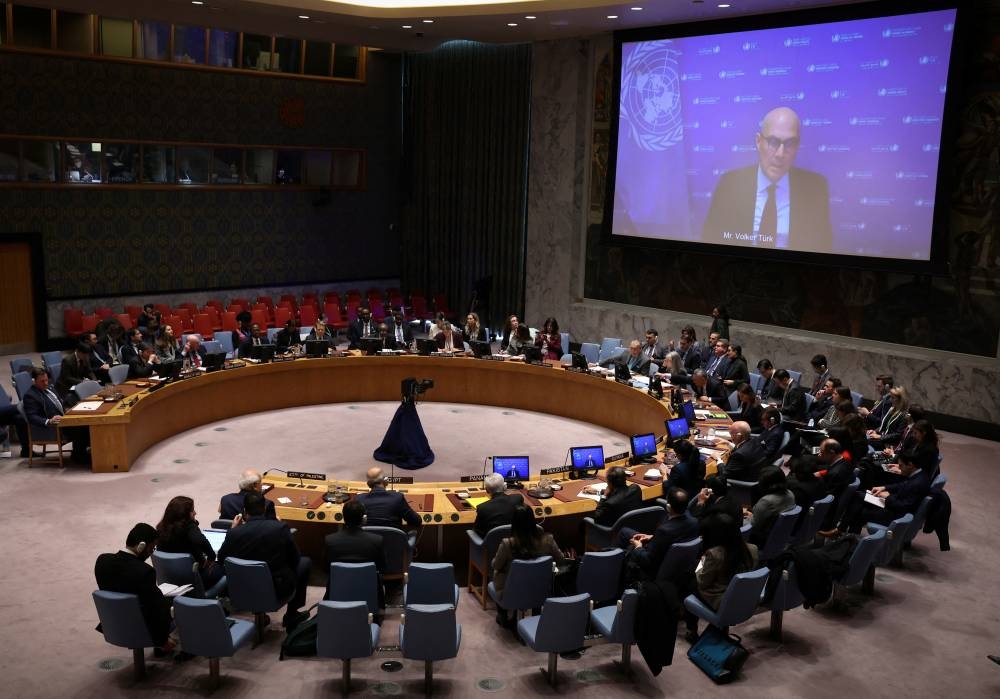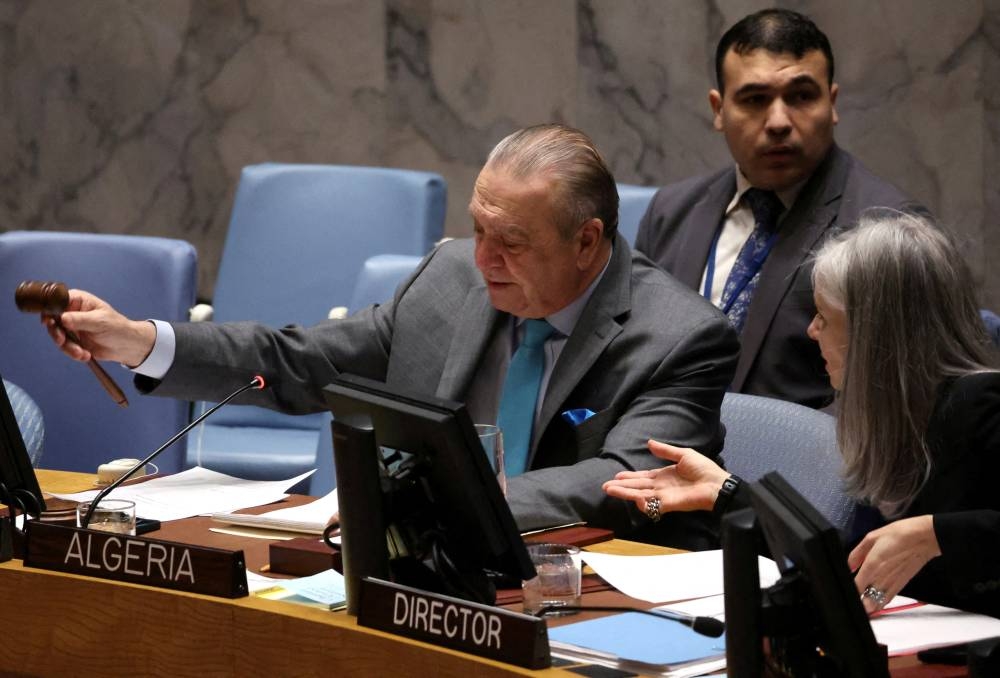The UN Security Council (UNSC) held a meeting to discuss Israeli attacks on health facilities in the Gaza Strip.
During the meeting, the Council heard testimonies from the UN High Commissioner for Human Rights and the World Health Organisation representative in the West Bank and Gaza.
The meeting was held at the invitation of Algeria, which holds the presidency of the UN Security Council during the current month of January.
UN High Commissioner for Human Rights Volker Turk said in his statement to the Security Council that a human rights catastrophe continues in Gaza before the eyes of the world. He added that Israel's methods of war have led to the killing of tens of thousands of people and widespread displacement and destruction, raising serious concerns about compliance with international law.
Turk referred to a recent report issued by his office covering the period from October 7, 2023 to June 30, 2024, which documented a pattern of attacks on hospitals, starting with Israeli airstrikes followed by ground forces incursions and the detention of some patients and staff, leaving hospitals unable to function. He stressed that protecting hospitals during wars is of utmost importance and must be respected by all parties at all times.
The UN official referred to the destruction caused by the Israeli army attacks last Friday to Kamal Adwan Hospital, the last operating hospital in northern Gaza, and said that this reflects the approach of attacks documented in the report of the UN Human Rights Office.
He pointed out that some staff and patients were forced to leave the hospital, while others, including the hospital director, were detained amidst many reports of torture and ill-treatment.
Turk stressed the need for military operations to always distinguish between military targets and civilians, and to adhere to the basic principles of distinction between targets, proportionality, and taking precautions when launching attacks. He said that failure to respect these principles is a violation of international humanitarian law, adding that deliberately launching attacks on hospitals and places where the sick and wounded are treated — given that they are not military targets — is a war crime.
The Human Rights Commissioner added that committing these acts as part of a widespread or systematic attack on a civilian population may also amount to crimes against humanity.
For his part, WHO Representative in the occupied Palestinian territory, Dr Rik Peeperkorn, summarised the situation in Gaza by saying that about 7% of the Strip's population has been killed or injured since October 2023.
He added that more than 25% of the estimated 105,000 injured suffer from life-changing injuries that will require extensive rehabilitation efforts and life-long medical technological assistance.
Time and again, hospitals become battlefields, rendering them unable to provide their services and depriving those in need of life-saving care, he said.
The Health sector in Gaza is being systematically dismantled and pushed to the point of collapse, amid a severe shortage of medical supplies, equipment and specialists, Dr Peeperkorn added.
He pointed out that only 16 of Gaza's 36 hospitals are still partially functioning, with a bed capacity of only 1,822, far below what is needed to deal with the massive health crisis in the Strip.
The UN official also spoke about the slow pace of medical evacuations, saying that more than 12,000 people need to be transferred outside Gaza for treatment, pointing out that the current slow pace means that their evacuation — including thousands of children — will take 5 to 10 years.
Despite the challenges, Dr Peeperkorn said WHO and its partners are doing everything possible to enable hospitals and health services to continue operating. However, he touched on the obstacles and restrictions on the entry of supplies into Gaza and throughout the Strip.
He said that only 40% of WHO's missions in Gaza during 2024 were facilitated, which directly affected the organisation's ability to provide supplies to hospitals, transfer patients from critical conditions, and deploy emergency medical teams.

UN High Commissioner for Human Rights Volker Turk appears in a video link to brief the first meeting of the UN Security Council of 2025 on the situation in the Middle East including the Palestinian question at UN headquarters in New York City Friday.

Algerian Foreign Minister Ahmed Attaf chairs the first meeting of the UN Security Council of 2025 on the situation in the Middle East including the Palestinian question at UN headquarters in New York City, Friday.
